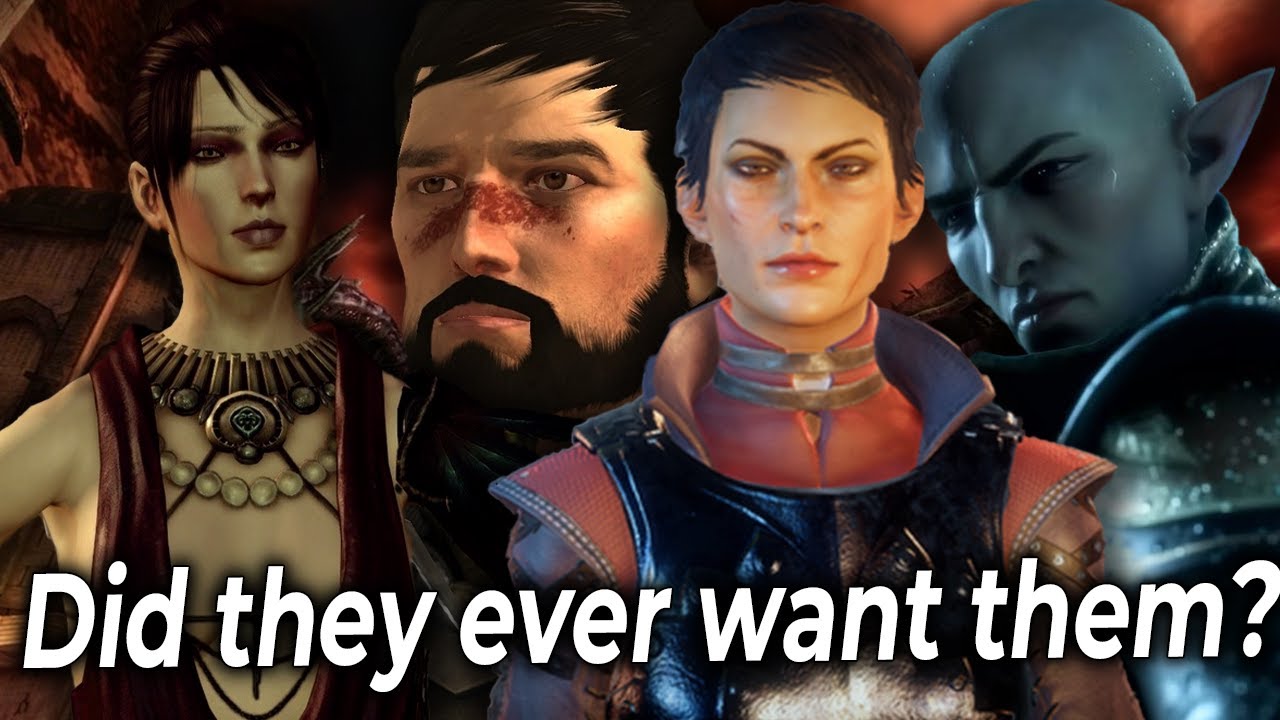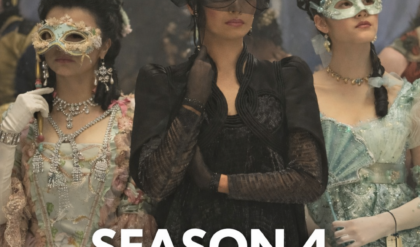⚔️ DID EA BETRAY THE HEART OF DRAGON AGE? ⚔️
Once, a legendary RPG series captivated us with epic tales and choices that shaped worlds. Now, whispers of corporate meddling and a franchise lost in time have fans reeling. Was Dragon Age doomed from the start by forces that never understood its soul? 😢 Uncover the shocking truth behind Thedas’ fall and what it means for the future. Click below to dive into the saga! 🔗

Did EA Kill Dragon Age from the Start? Unraveling the Fate of a Beloved Series
Since Dragon Age: Origins launched in 2009, BioWare’s fantasy RPG series has been a cornerstone of the genre, blending deep role-playing, rich lore, and player-driven storytelling. Set in the vibrant world of Thedas, the series captivated fans with moral dilemmas and memorable characters like Alistair and Morrigan. However, Dragon Age: The Veilguard in 2024, met with mixed reviews and disappointing sales, has sparked heated debate: did Electronic Arts, which acquired BioWare in 2007, sabotage Dragon Age from its inception, or is the series’ decline a result of broader factors? Let’s explore EA’s influence, BioWare’s choices, and whether Dragon Age was a franchise EA never wanted.
The Golden Age of Dragon Age: Origins
Dragon Age: Origins was a triumph, lauded for its tactical combat, six unique origin stories, and reactivity that let players shape Thedas’ fate. Developed before EA’s 2007 acquisition of BioWare, it reflected the studio’s CRPG roots, drawing from Baldur’s Gate and D&D. Former producer Mark Darrah has noted that Origins was designed without plans for a series, allowing bold choices like killing off major characters. Its “nerdy” depth clashed with EA’s vision of mainstream appeal, setting the stage for future tensions.
EA’s influence on Origins was minimal, as development was nearly complete by the acquisition. However, fans point to minor “corporate garbage” like overpowered DLC armor and MMO-style mission board quests as early signs of EA’s meddling. Despite these, Origins’ critical and commercial success—selling millions—established Dragon Age as a flagship franchise, raising expectations for sequels.
The Shift Begins: Dragon Age II and Inquisition
Dragon Age II in 2011 marked EA’s first major impact. Rushed to release in just 18 months, it reused environments and narrowed its scope to a single city, Kirkwall, drawing criticism for feeling like a “lazy cash grab.” Fans argue EA’s push to capitalize on Origins’ success compromised quality, though the game’s character-driven story, led by Hawke, earned praise. Former lead writer David Gaider called it a “project of multiple regrets” due to time constraints, hinting at EA’s role in setting unrealistic deadlines.
Dragon Age: Inquisition in 2014 aimed to restore the series’ grandeur, offering a vast open world and a return to tactical elements. It became BioWare’s best-selling game, proving EA’s funding could enable ambition. However, its MMO-inspired fetch quests and cross-platform compromises, such as supporting PS3 and Xbox 360, diluted its focus, frustrating fans who craved Origins’ depth. EA’s insistence on broad appeal led to a hybrid combat system that felt neither tactical nor action-packed, foreshadowing further shifts.
The Veilguard Debacle: EA’s Live-Service Misstep
Dragon Age: The Veilguard in 2024 is central to the narrative that EA undermined Dragon Age. Initially codenamed Joplin, it was a single-player RPG until EA mandated a live-service, multiplayer model (Morrison) to chase “billion-dollar” profits. After backlash and the failure of Anthem, EA allowed a return to single-player, but BioWare reused Morrison’s assets rather than restarting, resulting in a game with action-heavy combat and minimal ties to prior titles. Reports indicate it failed to meet EA’s 3–5 million sales target, with only 1.5 million “engaged players.”
Fans criticize The Veilguard for abandoning party control, altering lore with “goofy” darkspawn designs, and adopting a “Disney-like” tone with Rook’s fixed personality. The loss of writers like Gaider and Mary Kirby, coupled with inexperienced replacements, weakened the storytelling. EA’s rejection of a remastered trilogy, despite BioWare’s pitches, further fuels perceptions that EA undervalues Dragon Age’s legacy.
EA’s Corporate Culture: A Pattern of Mismanagement?
EA’s history of acquiring and closing studios—Westwood, Pandemic, Visceral—lends credence to the idea that it mishandled Dragon Age. Gaider has stated EA “never got” the series, unable to grasp why it outsold Mass Effect despite its niche CRPG roots. Darrah echoes this, noting EA’s corporate leaders, often from sports gaming, struggled to see Origins as mainstream, pushing for simplified mechanics to chase broader audiences. This led to The Veilguard’s action-heavy approach, which alienated fans who loved tactical combat.
EA’s pursuit of live-service models, seen in Anthem and initially The Veilguard, reflects a broader industry trend toward microtransactions and “games as a service.” Reports highlight how this “rapacious quest for line go up” disrupted development, draining BioWare’s resources and morale. Fans argue EA’s focus on profit over creative vision—evident in rushed releases and rejected remasters—shows a lack of faith in Dragon Age’s niche appeal.
BioWare’s Role: Not Blameless
While EA’s influence is undeniable, BioWare shares responsibility. The Veilguard’s decision to reuse live-service assets rather than return to Joplin’s single-player vision was BioWare’s call, driven by time and budget constraints. The studio’s loss of talent, including Gaider and Kirby, and reports of a toxic workplace hindered its ability to deliver. Fans note that BioWare’s pursuit of a “casual market” that doesn’t buy its games, as seen in Anthem and The Veilguard, mirrors EA’s mindset but stems from internal choices.
Inquisition’s success shows EA’s funding could empower BioWare when aligned with its strengths, suggesting the issue isn’t solely EA’s interference but a mismatch of priorities. BioWare’s failure to push back on EA’s mandates or streamline development exacerbated The Veilguard’s flaws, like its disconnected lore and sterile world.
Industry Trends and Fan Expectations
The Dragon Age series reflects broader industry shifts. The move from CRPGs to action-oriented RPGs, seen in Mass Effect: Andromeda and The Veilguard, aligns with a push for accessibility to compete with titles like The Witcher 3. However, this alienated fans who cherished Origins’ tactical depth. Larian Studios’ Baldur’s Gate 3 in 2023 filled the CRPG void, proving demand for complex RPGs, yet EA and BioWare leaned toward mass appeal, misjudging their audience.
Fans express heartbreak over The Veilguard’s departure from Origins’ role-playing freedom, citing Rook’s fixed personality and lack of party control. The rejection of a remastered trilogy, which could have rekindled interest, underscores EA’s reluctance to invest in Dragon Age’s legacy. Meanwhile, The Veilguard’s inclusion on Game Pass and early sales didn’t translate to success, as “engaged players” don’t equal sales.
Emotional Stakes for Fans
Dragon Age is more than a game—it’s a world where players forged memories, from saving Ferelden in Origins to romancing Solas in Inquisition. Fans feel betrayed by The Veilguard’s shift, seeing it as a loss of the series’ soul. The idea that EA “never wanted” Dragon Age resonates because its niche CRPG identity clashed with EA’s profit-driven vision. A remaster or return to tactical roots could have honored this legacy, but EA’s focus on live-service and action suggests a disconnect with fans’ desires.
Conclusion
Did EA kill Dragon Age from the start? The evidence suggests a complex truth. EA’s acquisition didn’t doom Origins, but its push for rushed sequels, live-service models, and mainstream appeal reshaped the series, often at the expense of its CRPG roots. Dragon Age II’s rushed development, Inquisition’s compromises, and The Veilguard’s troubled pivot reflect EA’s prioritization of profit over vision, as seen in their history of studio mismanagement. Yet, BioWare’s internal choices—reusing assets, losing talent, chasing trends—share the blame. While EA didn’t “kill” Dragon Age outright, its failure to nurture the series’ unique identity has left Thedas on life support. Fans can only hope for a revival, perhaps through a remaster or a return to Origins’ spirit, but for now, Dragon Age’s fate remains uncertain.





